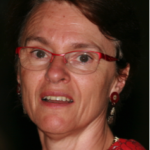Lien vers Pubmed [PMID] – 15262924
J. Bacteriol. 2004 Aug;186(15):4875-84
The symporter YhcL and two ATP binding cassette transporters, YtmJKLMN and YckKJI, were shown to mediate L-cystine uptake in Bacillus subtilis. A triple DeltayhcL DeltaytmJKLMN DeltayckK mutant was unable to grow in the presence of L-cystine and to take up L-cystine. We propose that yhcL, ytmJKLMN, and yckKJI should be renamed tcyP, tcyJKLMN, and tcyABC, respectively. The L-cystine uptake by YhcL (K(m) = 0.6 microM) was strongly inhibited by seleno-DL-cystine, while the transport due to the YtmJKLMN system (K(m) = 2.5 microM) also drastically decreased in the presence of DL-cystathionine, L-djenkolic acid, or S-methyl-L-cysteine. Accordingly, a DeltaytmJKLMN mutant did not grow in the presence of 100 microM DL-cystathionine, 100 microM L-djenkolic acid, or 100 microM S-methyl-L-cysteine. The expression of the ytmI operon and the yhcL gene was regulated in response to sulfur availability, while the level of expression of the yckK gene remained low under all the conditions tested.

